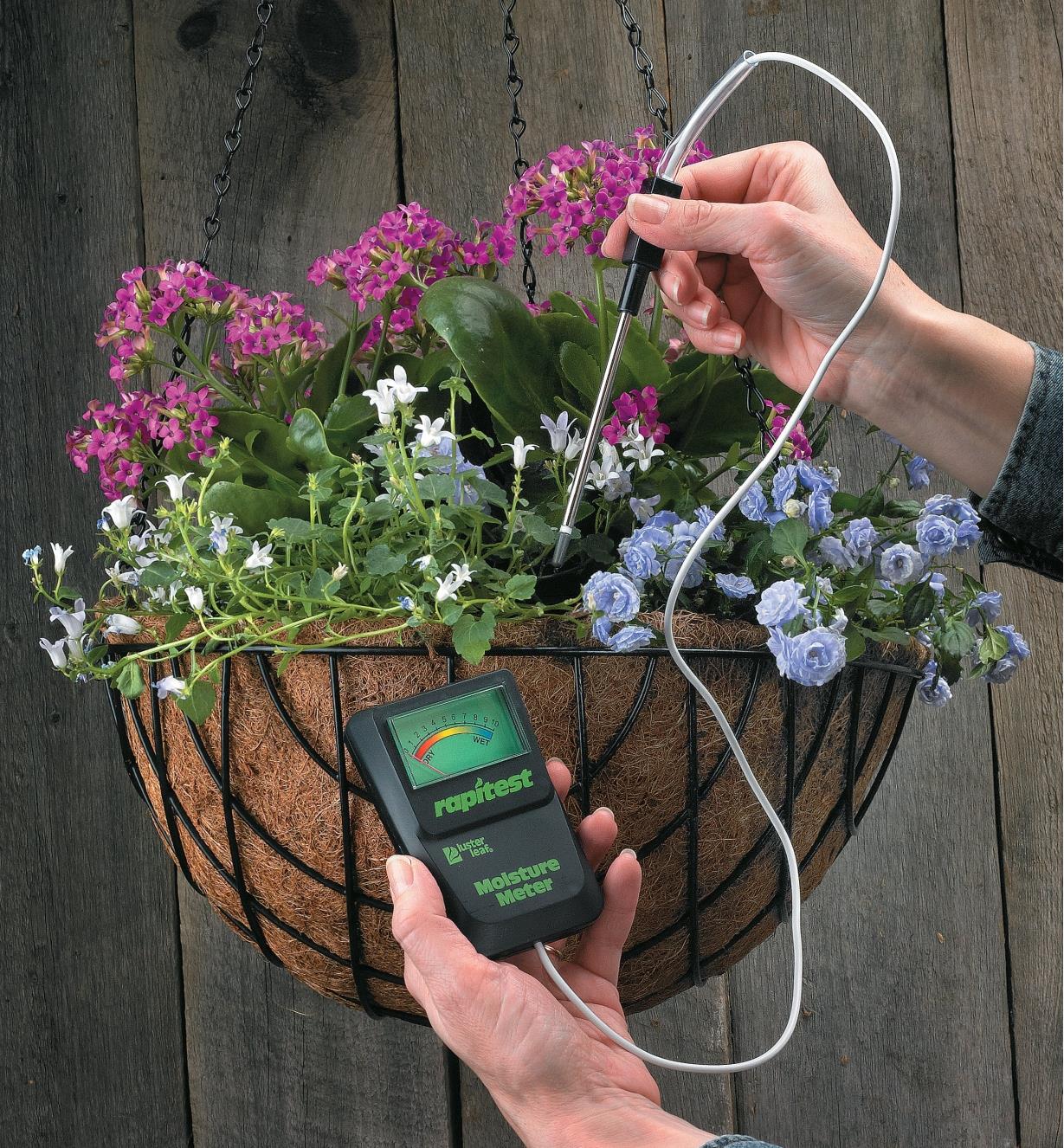The Ultimate Guide to Moisture Meters: A Comprehensive Review and Just How They Can Save You Money
In the realm of structure maintenance, construction, and different industries, the value of precisely measuring wetness levels can not be overstated. Moisture meters work as crucial devices in discovering and keeping an eye on moisture content in materials, assisting in preventing pricey damages and making certain the top quality of products. Understanding the nuances of various sorts of dampness meters, their applications, and the potential cost-saving advantages they use can be a game-changer for professionals and companies alike. Discovering just how these devices can not only simplify processes yet additionally add to financial savings is a trip worth starting.
Types of Moisture Meters
One usual kind is the pin-type wetness meter, which gauges the electrical resistance in between two pins put into a material. Pinless moisture meters, on the various other hand, usage electro-magnetic sensing unit plates to scan a bigger location without causing damages to the material's surface area.
Moreover, there are also specialized wetness meters developed for particular products like dirt, grain, or hay. These meters offer precise moisture analyses customized to the distinct residential or commercial properties of the product being evaluated. Infrared dampness meters measure the thermal properties of a product to determine its wetness content non-invasively, making them helpful for applications where pin or pinless meters might not be ideal. Understanding the various kinds of wetness meters readily available can aid sectors choose the most suitable tool for their details moisture dimension demands.

Benefits of Using Moisture Meters

Additionally, using moisture meters can cause increased power performance. By identifying locations with high wetness degrees, such as leaks or poor insulation, changes can be made to improve energy preservation and decrease utility prices. In agricultural settings, wetness meters play an essential role in optimizing crop returns by enabling farmers to check soil wetness levels and make notified watering choices. In general, the advantages of making use of wetness meters cover throughout various sectors, offering affordable options and advertising better high quality control techniques.
How to Choose the Right Moisture Meter
Selecting the appropriate moisture meter entails taking into consideration vital elements such as material compatibility, measurement range, and calibration accuracy. When selecting a dampness meter, it's necessary to make certain that the meter appropriates for the particular material you will certainly be screening. Various materials have differing electrical residential properties that can influence moisture analyses, so choosing a meter designed for your material is important for accurate results. Furthermore, think about the measurement array of the dampness meter. Make certain that the meter can identify dampness degrees within the range needed for your applications. Calibration precision is an additional essential aspect to bear in mind (Moisture Meter). Select a dampness meter with trusted calibration to make sure constant and accurate readings. Some meters might need routine calibration modifications, so recognizing the calibration process is necessary. By meticulously evaluating these aspects, you can pick imp source a wetness meter that satisfies your requirements and offers precise wetness dimensions for your jobs.
Proper Methods for Moisture Meter Usage
To guarantee accurate dampness readings and take full advantage of the effectiveness of a moisture meter, using appropriate strategies is important. When using a pin-type dampness meter, put the pins or probes right into the material being evaluated until they make complete get in touch with. By complying with these appropriate methods, users can depend on their wetness meter to offer reliable moisture degrees, assisting in stopping pricey damages or making sure high quality in different applications.

Cost Cost Savings Through Moisture Meter Applications
Exactly website here how can the calculated usage of moisture meters lead to substantial price financial savings throughout various sectors? In the farming market, wetness meters help in identifying the optimal time for gathering crops, avoiding over-drying or excess moisture that can influence the last item's quality.

In addition, in the food handling sector, wetness meters are vital for checking item high quality and making certain compliance with security regulations. By properly gauging dampness web content in foodstuff, manufacturers can protect against putridity, maintain quality, and decrease waste, causing significant price financial savings. In general, the critical application of wetness meters is a useful financial investment that can bring about significant price reductions and enhanced performance throughout different sectors.
Conclusion
In conclusion, moisture meters are valuable devices for spotting and gauging dampness degrees in different products. By using the ideal moisture meter and following correct techniques, customers can efficiently prevent expensive problems triggered by excess dampness. Purchasing a quality dampness meter can result in considerable cost financial savings in the long run by identifying possible concerns at an early stage and enabling timely removal. Ultimately, dampness meters are necessary instruments for preserving the integrity and longevity of materials and frameworks.
Moisture meters offer as essential additional hints devices in detecting and keeping an eye on moisture material in products, assisting in avoiding costly problems and making certain the quality of products. Infrared dampness meters measure the thermal homes of a material to determine its dampness content non-invasively, making them beneficial for applications where pin or pinless meters may not be suitable.Dampness meters offer invaluable advantages in properly evaluating and keeping an eye on wetness degrees in diverse products and settings. In farming setups, dampness meters play an important role in maximizing plant returns by enabling farmers to check soil moisture levels and make informed irrigation choices.In conclusion, moisture meters are useful tools for measuring and finding dampness degrees in different materials.